
Animal
11:53, 05-Jun-2019
Chimpanzees in the wild reduced to 'forest ghettos'
CGTN
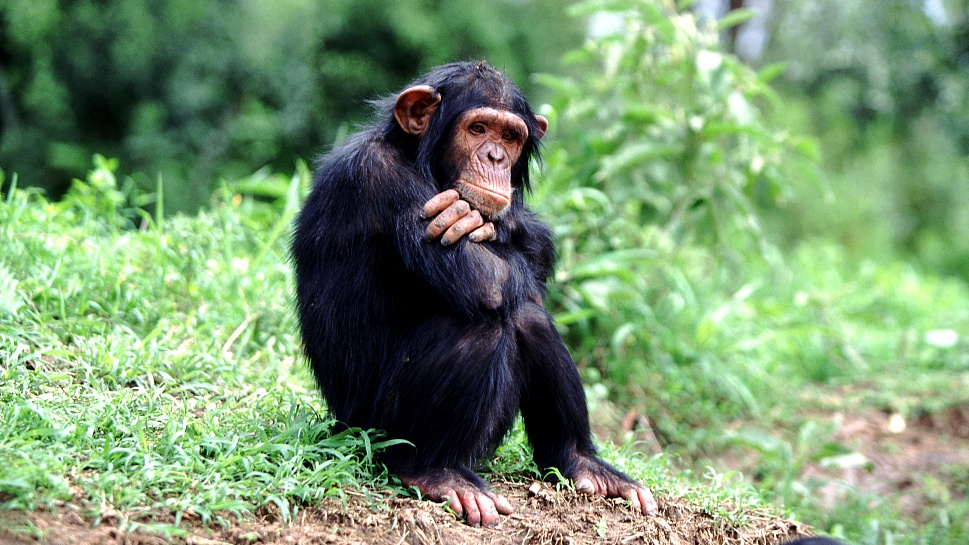
Urban expansion and hunting have pushed chimpanzees, humanity's closest relative in the animal kingdom, into shrinking islets of wildness, top experts said Tuesday after a three-day meeting in Germany.
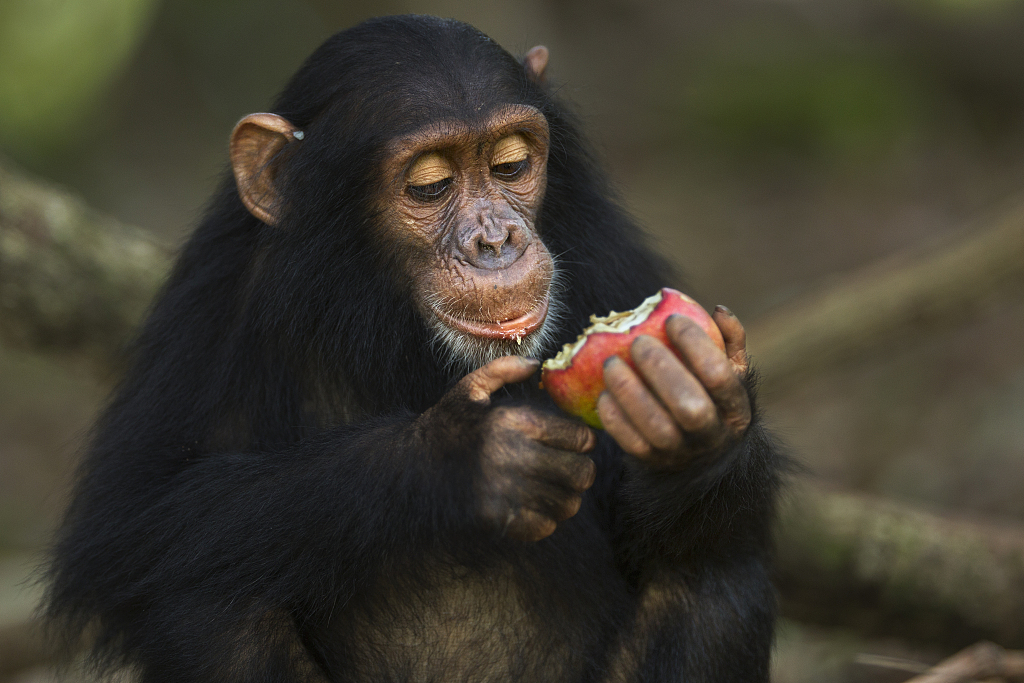
Chimpanzees are humanity's closest relative. /VCG Photo
Chimpanzees are humanity's closest relative. /VCG Photo
All four sub-species of the African primate are threatened with extinction, with at least one – the western chimpanzee – declining in number by more than 80 percent over three generations.
Forty chimp experts from around the world – with a combined 300 years of field experience – issued a collective appeal to save the only animal whose DNA overlaps with humans by 98 percent.
"Over the decades that we have been working with wild chimpanzee communities, we have all seen our study groups become isolated," they said in a statement.
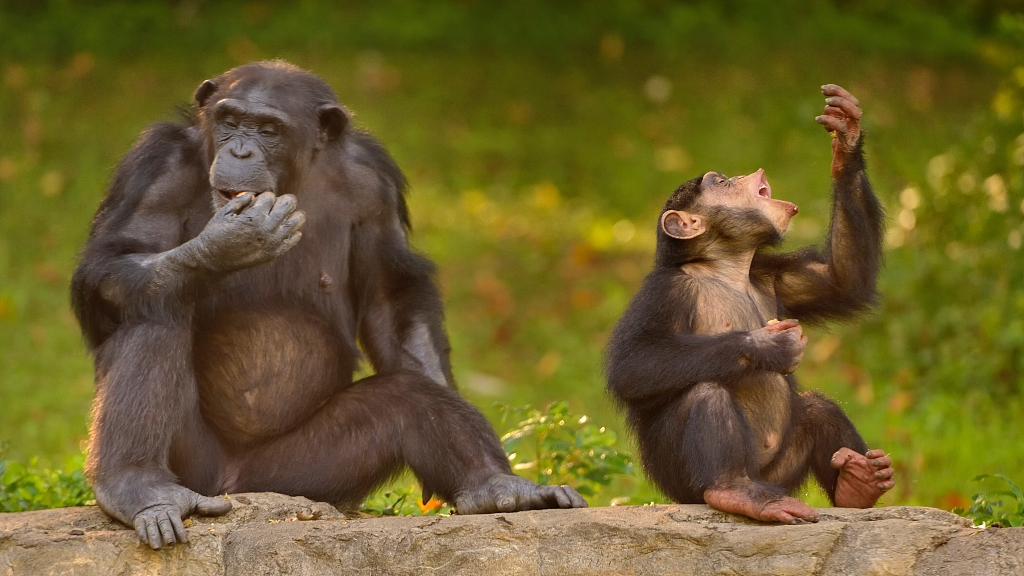
We share 98 percent of our DNA with chimps. /VCG Photo
We share 98 percent of our DNA with chimps. /VCG Photo
"Chimpanzees are being reduced into living in forest ghettos."
The main threat to chimps and other large mammals is habitat loss.
Africa still has large tracts of undisturbed savannah and forest, but these areas are shrinking rapidly due to growing cities, mining, deforestation, and industrial agriculture.
The continent's human population of more than 1.2 billion is expected to double by mid-century and could top 4 billion by the end of the century.

A chimpanzee rests on a stone. /VCG Photo
A chimpanzee rests on a stone. /VCG Photo
Chimps number in the thousands for three of the sub-species and about 250,000 for the eastern chimpanzee found mainly in the Democratic Republic of Congo.
Western chimpanzees have already been wiped out in Burkina Faso, Benin, Gambia and possibly Togo.
"Forty years ago, we drove 100 kilometers (60 miles) on a mud road to reach the park boundaries while encountering chimpanzees and elephants," said Christopher Boesch, a professor at the Max Planck Institute for Evolutionary Anthropology in Leipzig, Germany, referring to the Tai National Park in Ivory Coast.
"Nowadays, you have to reach the park boundaries to see the first patch of forest."
Last common ancestor
Human encroachment and the hunting of chimpanzees for "bush meat" has also altered the social life and behavior of the animals, said Crickette Sanz, an associate professor at Washington University in Missouri who has worked for decades in the Republic of Congo's Goualougo Triangle.
"When we first arrived in the Ndoki forest, the chimpanzees would often approach us with curiosity," she recalled.
Now they hide.
"It is wise that they have changed their behavior – their survival depends on it," Sanz added.
Compared to chimpanzees in pristine forests, those in areas disrupted by humans also showed a decrease in the diversity of learned behavior, according to a recent study.
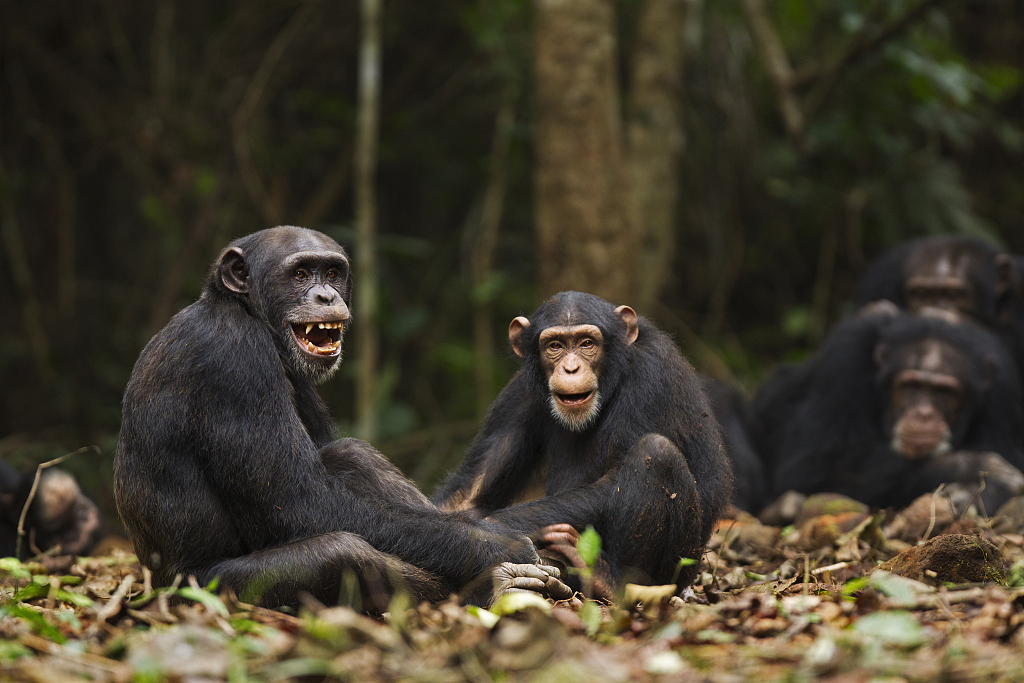
Chimpanzees. /VCG Photo
Chimpanzees. /VCG Photo
Scientists studying nearly 150 chimpanzee communities across 17 countries identified 31 actions – including cracking nuts, extracting termites or ants with tools, collected honey, throwing stones as a form of communication – that were done differently from one group to the next.
The more humans had carved up the environment – building roads, clear-cutting trees, setting up palm oil plantation – the more uniform these actions became.
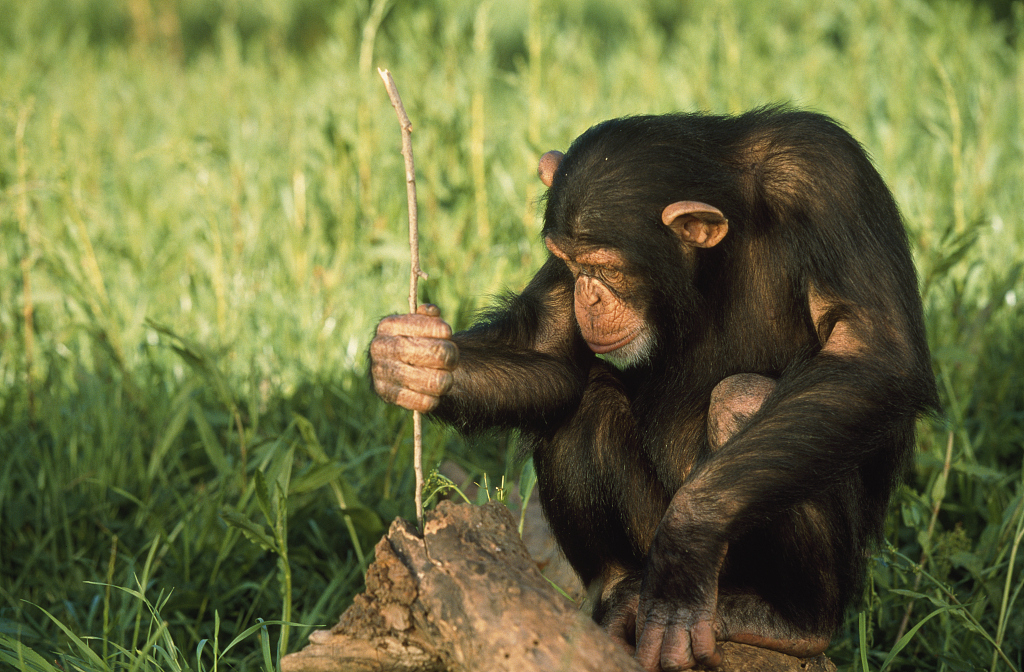
A chimpanzee extracts ants with a stick. /VCG Photo
A chimpanzee extracts ants with a stick. /VCG Photo
The last common ancestor of humans and chimpanzees lived about 7 million years ago.
"We did not evolve from bonobos or chimpanzees but we share with them a common ancestry," said Martin Surbeck, a primatologist at the Max Planck Institute for Evolutionary Anthropology, also in Leipzig.
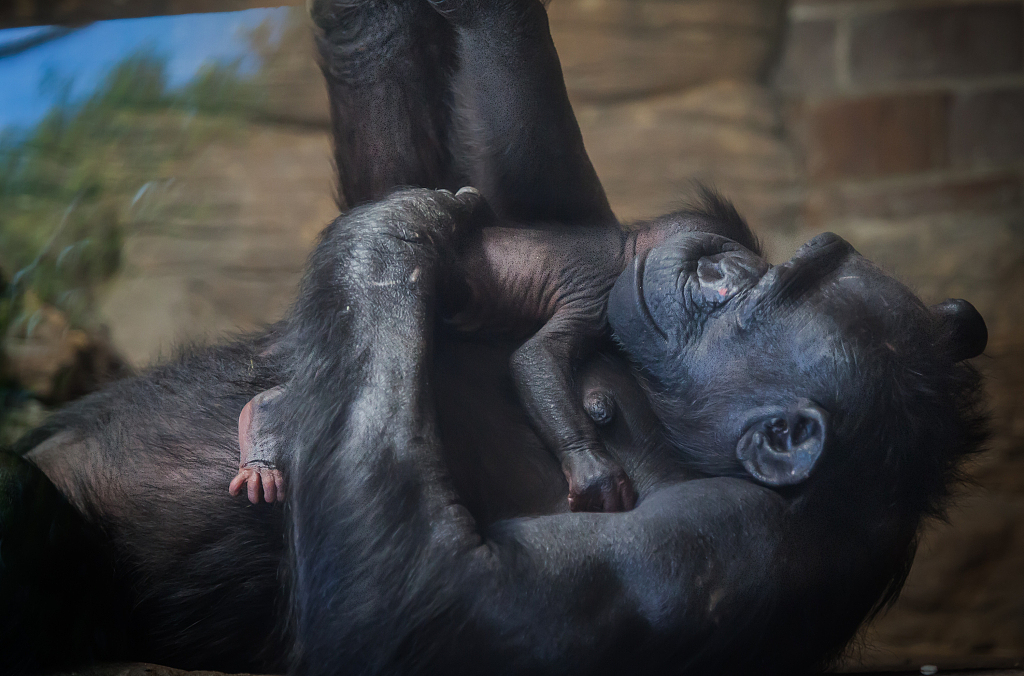
A lovely moment. /VCG Photo
A lovely moment. /VCG Photo
The famed anthropologist Irven DeVore once marveled at humanity's indifference to our closest primate cousins.
"If we, in our travels in space, should encounter a creature that shared 98 percent of our genetic makeup, think of the money we would spend to study this species," he said.
"Such creatures exist on Earth and we are allowing them to become extinct."
(Cover image via VCG)
(If you want to contribute and have specific expertise, please contact us at nature@cgtn.com.)
Source(s): AFP

SITEMAP
Copyright © 2018 CGTN. Beijing ICP prepared NO.16065310-3
Copyright © 2018 CGTN. Beijing ICP prepared NO.16065310-3